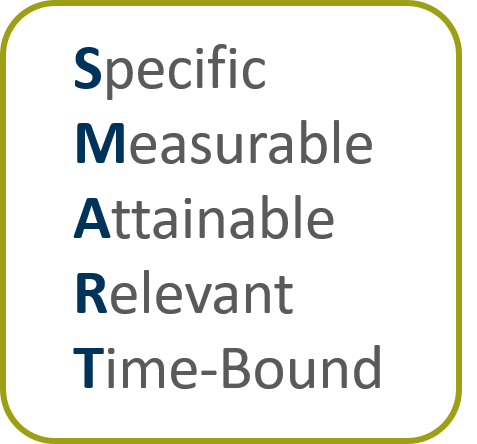Why you should make your goals SMART if you want to achieve them
Try as hard as we may, if we’re not hell-bent on pursuing something, the temptations of distraction, of pursuing anything and everything else that could fill our time, compounded with all the excuses we tell ourselves mean that more often than not we’re set up for failure as soon as we begin something new.
While there are a range of behavioural techniques that can improve motivation and incentive to commit to achieving your goals, it’s equally important to ensure that they are realistic and attainable. As our expectations for future events can be strongly anchored to the outcomes of past experiences, achieving goals can assist in building momentum and making larger goals achievable.
So what exactly are SMART goals?
SMART goals are ones that build in commitment devices and quantify how we know whether we’ve kicked a goal. Rather than proclaiming that you want to achieve some big picture, abstract goal, SMART goals encourage you to break down your larger goal into smaller step by step milestone goals for which progress can be tracked.
Specific
One of the biggest flaws in an abstract goal is that it’s abstract.
Let’s for example look at the goal “I want to be better at my job” for instance may sound like a beneficial goal but it’s so vague that I’d have no idea how to go about it. As such, to make it specific, I might want to consider in what ways do I think I could improve in my job and to choose one as a starting point to improve.
Measurable
As lovely as it is to say I’m working towards a goal, if I don’t know what the goal posts look like, I may very well keep running into the next oval and further. By making a goal measurable, it not only helps you clarify your focus so you know what you’re striving towards but it helps you know when you’ve reached the goal so that you can then shift your attention to another task.
For example, I might decide that I’ll know my job goal has succeeded when I have completed all company mandated courses on the specific topic I’ve chosen to improve on.
Attainable
Where ambiguity encourages procrastination, inability discourages effort. For this reason, ensuring that you have the necessary skills or the help required to achieve your goals is absolutely crucial.
Having decided to complete the online courses, I would need to ensure that I have access to the learning modules, that I can understand what’s being taught and that from those teachings, I’ll be able to apply what I’ve learned to my actual job.
Relevant
Because SMART goals break a bigger goal into smaller bite size pieces, relevance ensures that each step you take is helping you work towards that bigger outcome.
For example, my investing time in doing modules on a topic that has no relevance to my actual job probably won’t help me show that I’m dedicated to my role and worthy of a promotion. In contrast, if I can show that the subjects I’m spending my time on are directly going to help me be better in working with my team or performing a specific task, it will help keep me working towards the bigger outcome of why I’m pursuing the goal in the first place.
Time-bound
Time and deadlines are one of the best commitment devices available. If you’re someone that needs a deadline, they’re great for motivation and boosting the adrenaline due to the scarcity inducing effect of a clock ticking. Imposing a time limit also helps you to avoid procrastinating.
Using the job example above, if I for instance decided to impose a time limit of completing the courses before my annual review, that would motivate me to work towards the deadline. If I’m really organised, I’ll manage to block out time each month to do my studies and if I struggle with time management, then at least the pressure to get things done as the deadline approaches should help me work towards successfully reaching my goal.

